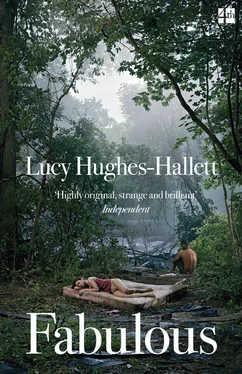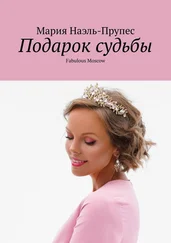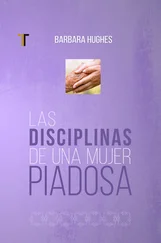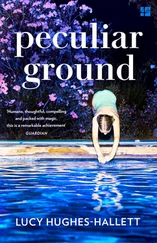Now, as he descended into the rocky innards of the earth in search of his Eurydice, he heard that music amplified a thousandfold. He heard matter grinding itself as it shifted. Ancient masses cooling, heating, expanding, collapsing. The fearsome noise of the inanimate on the move. He sang into it. His eyes were open on absolute darkness. He felt speed but could measure it only by the pressure of air against his chest, and by the void he sensed opening behind him like unfurled wings. Into the darkness he fired his voice. The uproar of rock and magma gave him his baseline. His song arced over it, flashing.
From morn to noon he fell, from noon to dewy eve, and all that time he saw no one, and breathed air that smelt of coal, and there was no dew, only clamminess, and then he was in a room, or a cavern – a finite space at least with black walls, and shaded lights that set the blackness glittering – and there was Eurydice, not the limp and pitiful residue that had lain in the hospital bed, but Eurydice herself, smiling at him with her slightly crooked mouth.
‘This is a bit drastic,’ she said. She disliked theatrical gestures.
‘I had to come,’ he said. ‘I’m no good without you.’
‘Hey ho,’ she said, and he could see her bracing herself to resume the business of being loved.
There were other people there, two of them. Doctors presumably. When Orpheus stepped forward to take Eurydice’s hands something prevented him, an obstruction in the air. The man said, ‘This isn’t really possible you know.’
The other one, the woman, came and took him by the arm. Her face looked red and blotched, cross, but when she touched him he felt that her hands were kind. It was something he had discovered in his dealings with the medical profession, the efficacy of the laying-on of hands. ‘The thing is,’ she said, in a reasonable voice, ‘you’re actually still alive. It’s most unusual.’
Eurydice watched and smiled but she didn’t move towards him. There was something vague about her, or maybe it was only that his eyes had been so exhausted by darkness that what they saw was half blotted out. The woman led him over to where the man was and they all three sat, and Eurydice was there with them – there, but not entirely there.
‘I can’t do without her,’ said Orpheus.
‘A lot of people in your situation feel that way,’ said the man.
‘We’re not denying the existence of grief,’ said the woman. ‘We know how challenging it can be, especially to those who are of a certain age.’
‘My life is founded on her love,’ said Orpheus. ‘On loving her.’
The woman stroked his hand.
‘You have friends,’ said the man. ‘You have intellectually stimulating work. You have an adequate level of financial security. I know these things may seem paltry in the light of what has happened, but our experience tells us that you will gradually recover your enthusiasm for them.’
They both talked like that. They offered counselling. They spoke at length about the importance of maintaining social contacts, about taking walks on a regular basis and eating sensibly. All the time he was looking at Eurydice and she was looking at him. She seemed amused. Often at parties they would catch each other’s eyes like this – he signalling ‘Time to go?’ and she signalling back ‘Come on, you old spoilsport. Give it a bit longer.’ She was clearer now, fully in focus, but he could see the blackness of the rock-face through her insubstantial frame.
‘You’ll find a regular sleep-pattern is vitally important,’ said the man. ‘We can help you there. Hypnotics are really very effective nowadays and the adverse side-effects are negligible.’
‘Have you ever considered taking a cruise?’ asked the woman.
Orpheus didn’t answer them. He didn’t look at them. He fixed his eyes on Eurydice’s and he took a breath and he sang.
They flew. The music lifted them. He could no longer see her but that was only because the darkness was, once more, absolute. She was definitely there. He could feel the soft secret parts of her body that he knew as no one else did, the valleys flanking her hip-bones, her earlobes, the backs of her knees. The sense of them was on his fingertips. He could smell her hair. Her being warmed his back. Always, when he woke in the morning, he knew before he opened his eyes whether she was still in the bed. It wasn’t that they slept entangled as they had when they were young. Their bed was wide, and they kept to their own sides of it, but always there was that warmth which is not only bodily – the warmth of another person’s presence. Breathing makes a sound, but it also makes a vibration in the air. She was there. She was following him. Her following powered his flight and his song powered hers.
My song is love unknown
He sang hymns in the bath. He used to sing them on his bicycle before his knee seized up. His singing life had begun in church when he was a child. The lady who drove the library van smiled at him from the choir stalls and he thought she was inviting him to fly up with her, so when she sent her voice looping above the others – high, higher – he followed her with his own. Afterwards his parents apologised – Honestly, I don’t know how he even knows the descant – but the library lady smiled again and said to the vicar, ‘I think we’ve found our soloist for “Once in Royal”, haven’t we?’ He didn’t know what she was talking about. He was seven years old. After that he sang with the lady every Sunday. The most useful part of my entire education, he’d tell interviewers. Forget about God; we have to keep the churches open so young people get a chance to sing.
But O! my Friend,
My Friend indeed,
Who at my need
His life did spend.
He had no intention of spending his life for Eurydice, or anyone else for that matter, but he had to get her out of there, and himself. They had to keep rising. In the dark room he had held her gaze, because he thought that his seeing her made her visible. Now, with the same dogged fixity, he concentrated his will on a point of light an immense distance above them. He was tired. He couldn’t remember why he was in this dark place, why his wife was clinging to him, so heavy, so heavy, but he knew he must keep his eyes on that light, must keep his voice sounding out, however dry his throat or short his breath, must keep ascending on a stream of silver sound – limpid, ethereal, suave as upwardly flowing milk – leaping towards the light.
He was so angry when they resuscitated him that the nurses – two men – backed off momentarily, accustomed as they were to dealing with the desperate, before buckling-to again and holding him down. Milla said, ‘We nearly lost you too. Can’t have that, Oz. What would poor Dodie do?’ Dodie was the dog. He hadn’t given her a thought. Milla must have handed her over to some friend or neighbour. What the fuck made her think he cared buggeration about the dog? He couldn’t give a shit about the dog. He’d never liked it.
A nurse said, ‘Don’t let him upset you, love. It’s shock. And the dementia. He’ll be the perfect gentleman again once he’s calmed down.’ He heard as from a long way off. He fought. He shouted. He wanted them all to be upset.
He had so nearly made it. His song had amazed him, so beautiful it was, and so potent. As deep water will not accept a bladder full of air, as it forces it back up to rejoin its own element, so the darkness had repulsed him. With music streaming from his mouth he was luminous. He was swept back up into the light. But he was swept alone. His power to save Eurydice depended on his being independent of her. He mustn’t turn to her for help. He mustn’t turn at all. But, with his attention fixed on the gleam, he had forgotten whom he was carrying. Tossing in the current of song he became bewildered. He didn’t know what he was doing here. He knew there was something he needed to worry about. Was it the heating? Something like that. He took his eye off the circle of light. He looked around. He had lost his sense of purpose. He needed a clue, a cue. He looked back.
Читать дальше











